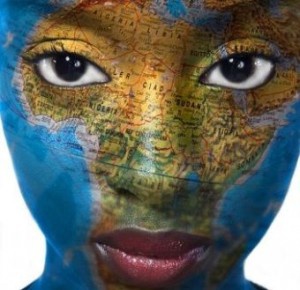Humanism has become a necessity for Africa and for Africans; particularly for young people across the region who are struggling to make sense of life and existence.
Youths are critical to any human endeavor because they are the agents of hope, continuity, change and promise. Without young people, any society or initiative will go into extinction. Without young people, there is no future for humanity. So, it is with Africa and the humanist movement in the region.
Africans are not exposed to humanist ideals and values very early in life. This is why the meeting of young humanists in Nairobi, from July 22 to July 24, is a welcome development. Young Africans who are atheists, agnostics, and freethinkers will convene at the Kenyan capital to articulate strategies to end witch-hunts in Africa and to raise the profile of humanism among youths in the region.
Surely, the sponsors and organizers of the event in Kenya should be commended for their foresight and thoughtfulness because such an event will go a long way to guarantee a future for humanism for the coming generation of Africans.
Religious indoctrination often characterizes child upbringing and family life in Africa. Thus African youths get to know about humanism much later in life or they know it by default particularly with the availability of the internet in today's world. Also there is a lot of pressure on young Africans to be religious even when religious doctrines mean very little to them.
African children are compelled to pray by their parents and family members who impress on them very early that observing such a ritual is a mark of discipline. As they grow up, praying becomes a habit they find difficult to abandon even when it means very little to them. Praying becomes a tradition which they are to pass on to the coming generations.
Apart from the heavy religious indoctrination at home, there is a lot of brainwashing schemes outside the homes. Children from Muslim homes are sent to Quranic indoctrination centers where they are taught to memorize verses of the Quran, while those from Christian homes go to catechism or Sunday school classes where they are further indoctrinated with the religious teachings.
African youths are socialized in ways that do not allow them to think outside religious boxes. They grow up caged and mentally trapped in the cave of dogma, ignorance and superstition.
Apparently, Africans grow up without knowing that there is an alternative to religion and without understanding that belief in God is a choice and an option. It is equally unfortunate that formal education has not been helpful in opening the minds of young Africans because schools, colleges, and universities are owned, managed and controlled by religious or quasi-religious individuals and groups.
Faith education is more or less the rule and secular instruction is the exception. Eventually, African youths receive faith-based schooling, which does not give them much freedom to think freely and question ideas particularly religious dogmas and superstitious beliefs.
As educated people, many Africans find it difficult to question religious ideas because of fear of losing their jobs, business or political opportunities.
Religion is literally holding the African youth development hostage. To break this cycle of blind faith; dogma, and mental slavery, African youths need to be exposed to the ideals of humanism and free thought. Young people across the region need to understand that critical thinking is intellectually nourishing, existentially empowering and fulfilling.
We cannot achieve this goal by just saying it, but also by doing it, by helping African youths who are humanists or who appreciate humanism to fulfill this objective. African youths need to be supported as they embarked on this process of intellectual awakening and enlightenment.
For instance, we need to support them as they try to organize events and articulate strategies to effectively promote humanism in the region.
African youths depend mainly on their family members who are religious and who would want them to be and to remain religious for financial support. Due to unemployment or underemployment, a self-supporting African youth humanist scheme is not viable at all. It does not make organizational sense. So all who support the African youth humanist scheme should explore ways of sponsoring this youth project and put the African youth resource into use.
We need to support the African youth humanist project because there is a fierce competition for the youth capital in the region. Religious extremists and superstitious movements are recruiting and enlisting youths and using them to further their dark and destructive schemes.
The sad thing is that young people are both the victims and the victimizers.
Young people populate the Islamic militants groups that are killing, maiming and destroying lives and property in different parts of the country. Youths are the suicide bombers and also most of those who are killed or maimed on the process.
Youths are the witch hunters in the communities. They are also those who are arrested and jailed for witchcraft related abuses. We need to ensure that the African youth capital is invested to further the cause of reason, science, and critical thinking.
African youth resource has to be deployed to further life and happiness in the here and now, not in death and fathom happiness in the hereafter.The imperative of humanism is urgently needed to beat back the tide of witch hunting and religious fundamentalism in the region.
Opinions of Friday, 8 July 2016
Columnist: Igwe, Leo
Youths and the imperative of humanism in Africa
 Youths are critical to any human endeavor because they're the agents of hope, continuity, and change
Youths are critical to any human endeavor because they're the agents of hope, continuity, and change














